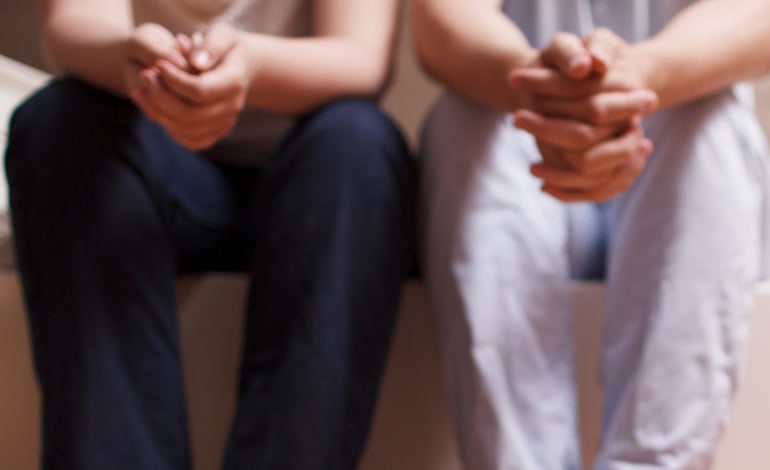“Motherhood and depression are two countries with a long common border. The terrain is chilly and inhospitable, and when mothers speak of it at all, it is usually in guarded terms, or in euphemisms.”
-Tracy Thompson; Ghost in the House
Depression is an all-encompassing mood disorder that affects nearly every aspect of your daily life. Depression does not live in a vacuum. As a parent, your depression can affect your children, even in the slightest ways, as children are human sponges and can absorb your mood and feelings, even if you are trying to hide your sad days. Some studies have shown that parents with depression have been found to interact with their children differently. They tend to use less emotion, less expressivity in their language and make less eye contact. This can alter a child’s perception of the world, both internally and externally and affect them through adolescence and adulthood.
Some parents with major depressive disorder may struggle to get out of bed in the mornings, which can affect their children’s productivity and care. They may fail to take their children to school on time, miss important school meetings, and forget about doctor appointments. Depression can be overwhelming, and parenting is one of the most challenging jobs. Parents with depression often feel guilty for not being able to be the “perfect parent”. As a result, they enter into a pattern of self-rumination and blame, which can further affect their child’s development. One of the most important lessons as a parent, who has depression, is not blaming yourself for your mental health disorder.
Signs and symptoms of parental depression
Depression affects a parent’s mood, energy levels, sleep patterns, and appetite, resulting in persistent sadness, loss of interest in pleasurable activities, and thoughts of suicide. Untreated depression can potentially spiral and result in substance use disorders, low self-esteem, and unhealthy decision making within the family unit.
Signs of depression that are specifically related to parenting include:
Lack of receptiveness to a child: Parents with depression are less likely to respond appropriately to their children’s distress cues. They may not respond appropriately when their child cries, make eye contact, or exhibits certain gestures.
Inappropriate parenting behaviors: Some parents with major depressive disorder are neglectful and disengaged from their children, while others are hyper-intrusive and over-engaged. Unfortunately, neither hyper-intrusive nor negligent practices are sensitive and appropriate to the child’s upbringing and development.
A child’s tardiness or truancy at school: Children may consistently arrive late or miss school because their parents lack the energy or organizational skills to get out the door on time. This can result in trouble at school not only with the teachers and administration but also has the potential to attract bullying.
Will I pass down my depression to my child?
Depression, like many other mental health disorders, is genetic, and as a result, parents have the potential to pass down depression to their children. However, this is not set in stone as environmental factors also play a massive role in the development of depression. Positive family environment, healthy coping skills, open communication, physical touch, emotional support, and therapy are all preventive measures for depression.
What can parents with depression do?
Ask for help: Parenting is hard, regardless if depression is present or not. Talk to your therapist about effective parenting strategies and ask about healthy coping mechanisms. Also, if you need a break, ask your friends or family members to watch your kids while you take time for yourself to practice self-care. Asking for help is a sign of strength, not a sign of weakness.
Get help for your child: A therapist can help teach your child about depression and understand that this is a disorder that everyone must learn to work through together. Therapy can also improve your child’s emotional and behavioral struggles that may be related to your depression.
By seeking professional help for both you and your child, you will find that parenting can become easier with time and healing. Your family, including your child, will benefit from a healthier, more positive environment.




